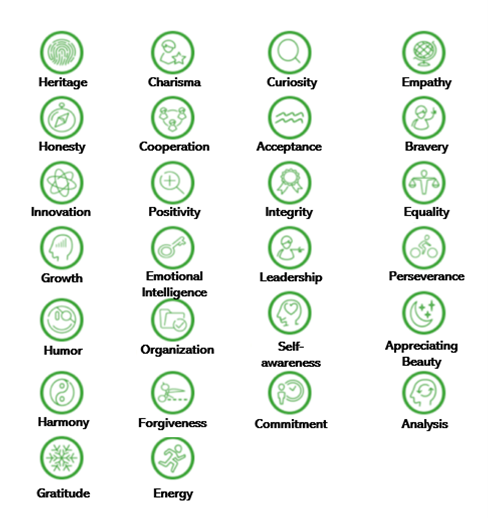Uncovering the Potential in Your Personal Strengths

Like every branch of science, psychology has evolved a great deal over the years. In the past, it was believed that it was only by talking about the things that made us feel bad, and identifying the cause of our discomfort, that the healing process could begin. However, experts are now aware that simply knowing isn’t enough.
If we want to see real, meaningful change on an emotional level, we have to take steps to alter our neural activation and thought patterns. In this article, we’ll take a look at this idea in more detail, discovering different techniques and the impact they can have.
Personal strengths and the role of positive psychology

Positive psychology is a branch of psychology that focuses on helping people to recognize and appreciate their own personal strengths. To do this, you have to identify the things you’re good at, and how you can play to these strengths when it comes to achieving goals and overcoming adversity.
This strategy is based on a scientific method, which means that the models and exercises used have been previously studied and validated to show that they’re effective in a significant proportion of the population. This, in turn, proves that the results obtained aren’t due to chance or the placebo effect.
Positive psychology focuses on what the person does well so that they can start to develop this skill. This also helps to take the focus away from things the person does badly. In addition, numerous scientific, longitudinal, and meta-analysis studies have shown that positive psychology works.
Contrary to what many believe, this discipline doesn’t aim to force patients to be happy and positive 24/7 or suggest you start the day drinking herbal tea out of a sparkly unicorn mug. It’s about discovering inner strengths that you can use to help you through times of crisis.
Personal strengths and hidden talents
Understanding your own strengths is like having a hidden talent. These strengths provide us with individual techniques that can help us to face situations that would otherwise limit us, and prevent us from using our skills to the best of our abilities. In many cases, playing to your strengths is actually far more useful than forcing yourself to improve on your weaknesses.
At the end of the day, self-esteem, self-confidence, creativity, and the ability to forgive ourselves and others all have to come from within, not from others. This can only happen when we learn to recognize our strengths and put them to good use.
The key is to identify your strengths
What are your strengths? Maybe you’re brave or curious? If you stop to think about it, you may be surprised to discover just how many strengths you have. Now, if you’re still not sure what they are, you could try using the FORTE test from the European Network for Positive Psychology to find out.
FORTE is a concept developed by the ENPP, and is based on the idea that we should learn to recognize and use our strengths. They’ve identified 26 key strengths, which a person may possess in three degrees of intensity: a lot, a little, or in moderation.

Researchers have observed that when we utilize the strengths we possess in moderation on a regular basis, it can help to increase levels of psychological welfare. In fact, they’re an unlimited source of happiness and positive emotions.
Several studies show that the recognition and use of personal strengths can help to improve well-being, satisfaction, and productivity. In other words, acknowledging our strengths is a great way to guarantee success.
Uses and benefits
Once we’ve identified our strengths, we can start to take advantage of them, using them to further our personal and professional development. Here are just some of the ways this can help you on a day-to-day basis.
- Improve self-esteem.
- Boost assertiveness.
- Temper strong characters.
- Improve emotional intelligence.
- Help us to become more forgiving.
- Boost self-confidence.
- Increase positive emotions.
- Decrease feelings of intense anxiety.
- Help to prevent or reduce automatic negative thinking.
Finally, don’t forget that everyone excels at something. Therefore, start by identifying what it is you’re good at, and then work on it so that you can enjoy it to the fullest.
This text is provided for informational purposes only and does not replace consultation with a professional. If in doubt, consult your specialist.








